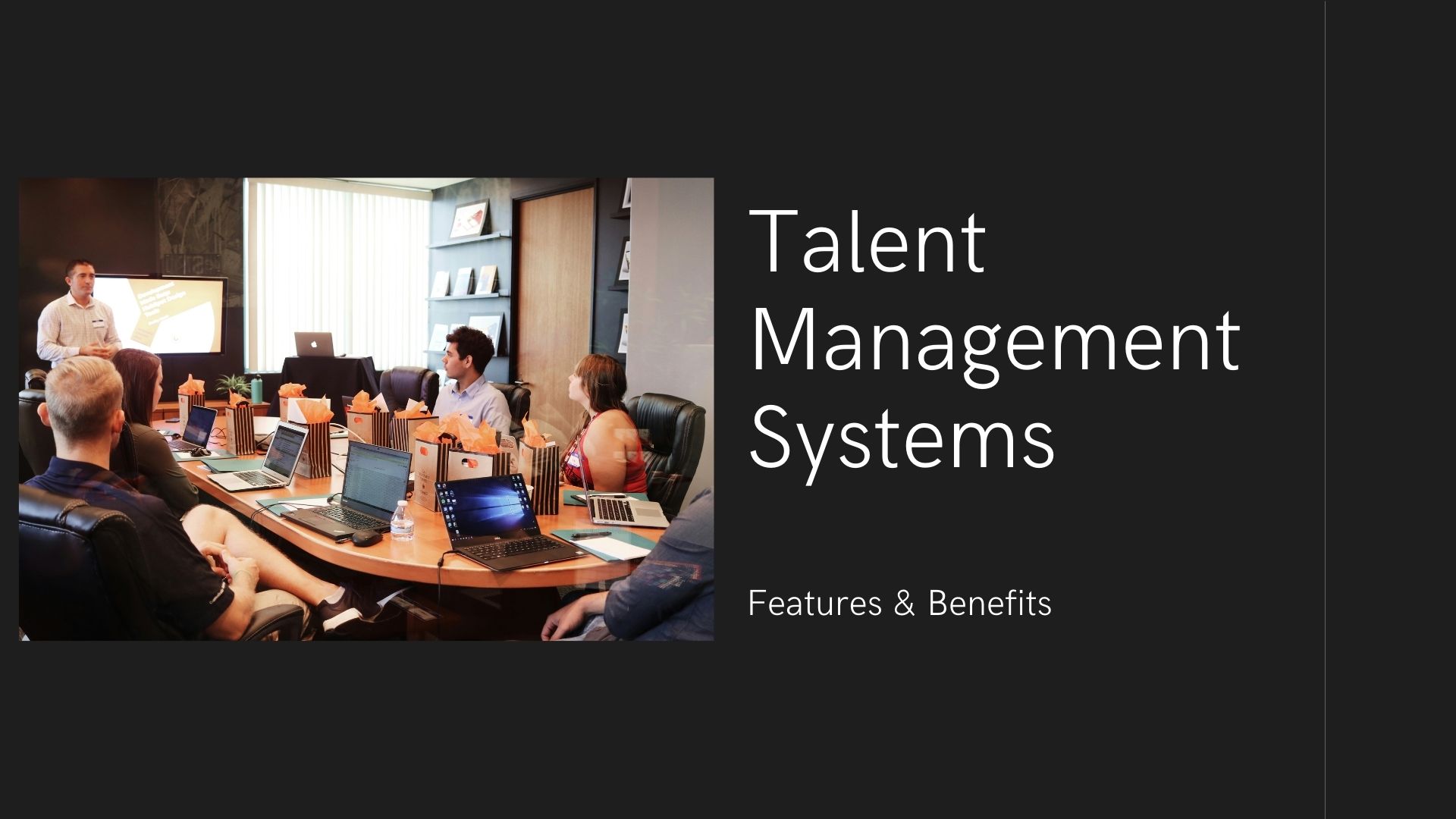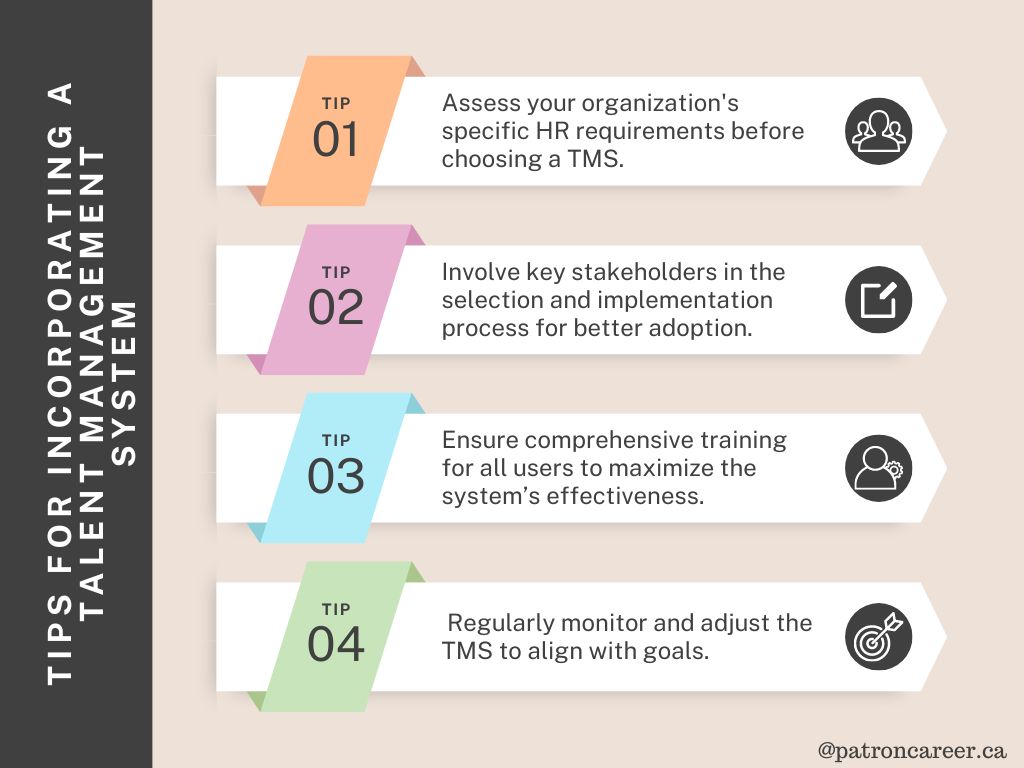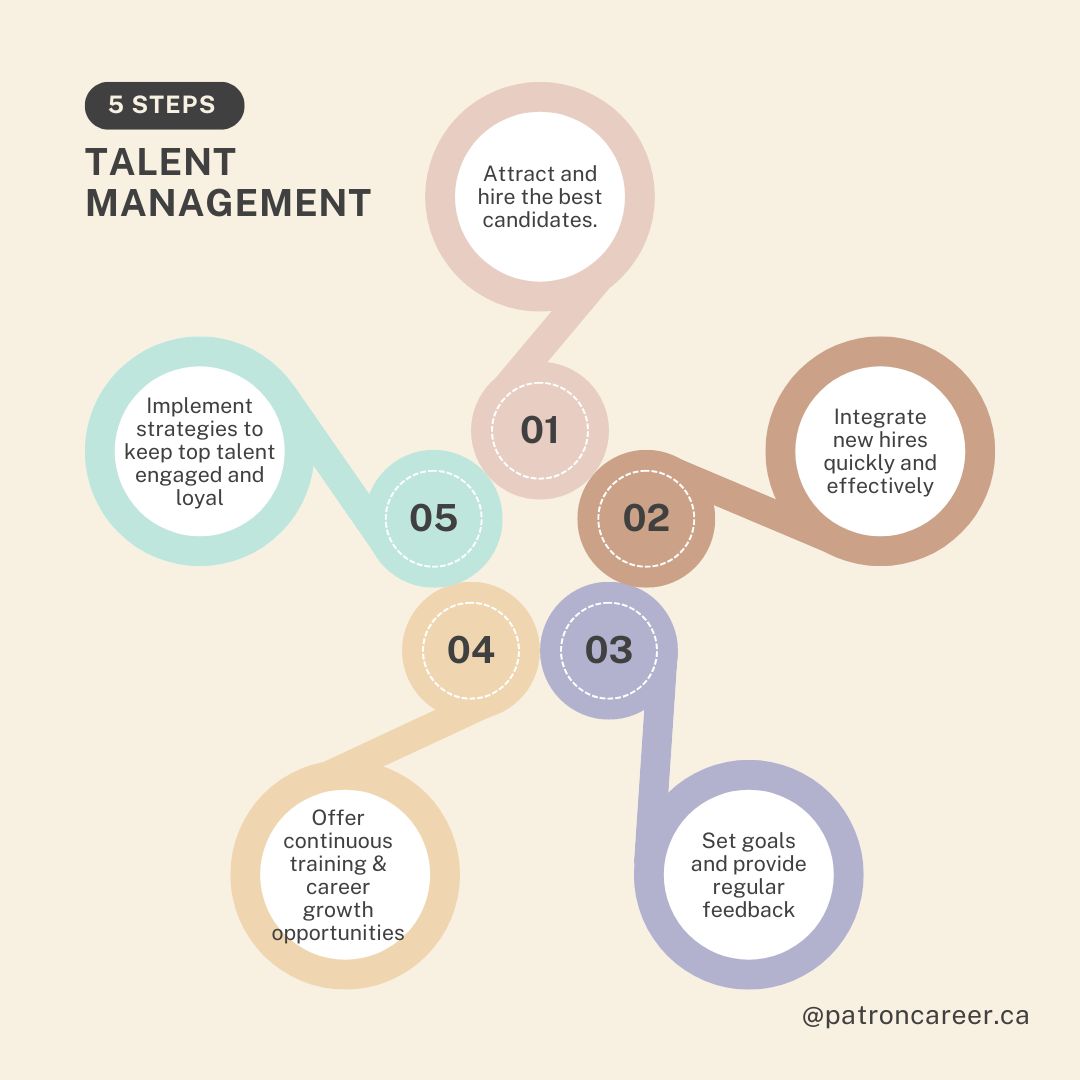
Employee’s Job Performance
18 April, 2024
Patron Career Staffing firmly believes in adopting a tailored approach to meet temporary and permanent recruitment needs. We safeguard the interest of our clients by finding such workers who are knowledgeable and reliable.
About UsNeed help? Make a Call
32 Dundas Street East Unit A, L5A1W2

Modern businesses today stand at the crossroads of competition and innovation, making Talent Management Systems an indispensable hiring tool for long-term success. There’s more to Talent Management Solutions than simply an operational upgrade- a strategic investment in your company’s future. For a competitive organizational edge, integrating a Talent Management System (TMS) might be the right choice for businesses aiming to leverage their HR processes and drive growth.
Talent is sine quo non of any business entity, and so is the constant need to ensure that you manage your talent profoundly to squeeze the best out of it. TMS is a game changer for an organization’s longevity by streamlining talent acquisition, employee engagement, retention and productivity.
Understanding what a Talent Management System is and how you can benefit from implementing one is a crucial first step to leveraging its full potential.
Defining Talent Management System
A continual process of acquiring, employing, developing and retaining employees is known as talent management. A TMS is a comprehensive software solution aimed at managing the workforce efficaciously. Managing talent may seem like a skillful manoeuvre, from handling employee recruitments, onboarding, induction, and training, to performance management, retention and offboarding. When aligned with the strategic business objectives of the organization, the Talent Management System becomes a power-packed tool integrating the majority of HR functions.

Key Features of a Talent Management System
RBefore delving into the nuances of Talent Management Systems, let's configure the pivotal features of TMS that help businesses reach the pinnacle of success. Key features include tools for recruitment and onboarding, performance management, learning and development, succession planning, and employee engagement:
1. Recruitment and Onboarding TMS is a robust tool for automating and optimizing HR recruitment processes under a single roof:
2. Performance Management Performance management processes are approachable with TMS software to monitor, review and improve an individual’s or team's performance:
3. Learning and Development The L&D module supports workforce development and skill enhancement, paramount for maintaining a competitive edge.
Read: Driving Employee Engagement Through Learning and Development
4. Employee Engagement and Retention The keys to a committed and motivated workforce, employee engagement and retention, are vitally managed through TMS:
An employee’s entire talent management lifecycle can be well managed by the collective functioning of these key features.

Benefits of a Talent Management System
HR always are as busy as a beaver coordinating enormous tasks and workloads. A TMS makes this perplexity a lot easier, with its automation and optimization features. Talent Management Systems simplify HR tasks related to vetting resumes of candidates, performing performance reviews, training management, providing feedback, reducing manual workloads and lessening errors. With automated workflows and self-service portals, employees and managers can quickly complete tasks such as updating personal information, enrolling in training programs, or setting performance goals, saving significant time.
1. Improved Efficiency
HR always are as busy as a beaver coordinating enormous tasks and workloads. A TMS makes this perplexity a lot easier, with its automation and optimization features. Talent Management Systems simplify HR tasks related to vetting resumes of candidates, performing performance reviews, training management, providing feedback, reducing manual workloads and lessening errors. With automated workflows and self-service portals, employees and managers can quickly complete tasks such as updating personal information, enrolling in training programs, or setting performance goals, saving significant time.
2. Enhanced Employee Experience
Once a new hire has boarded the massive organizational ship, their smooth transition into new roles and culture becomes functionally important. Recruitment and onboarding new talent is a cumbersome process that can be simplified with a range of tools of TMS. All is taken care of when a new employee is hired ensuring a positive initial experience that uplifts his morale and confidence. Employee experience (EX) is a relative experience in the employee’s lifecycle at work, involving career goals and development plans, aspirations, and engagement that can be fuelled through individualized career programs and learning paths.
Read: Navigating the Candidate Experience: Tips for Improving Recruitment Processes
3. Better Decision Making
Talent Management Systems provide data-driven insights and reporting tools to analyze key metrics, including employee retention and turnover rates, training functionalities and performance trends. Better and vitally informed decisions about the company and its people can be undertaken under the umbrella of tools incorporated by TMS.
4. Greater Compliance
Complying with legal and regulatory requirements can become a daunting task for HR swamped up by tedious work day in and day out. Talent Management Software frees you from constant check-ins and risk of non-compliance and penalties by standardizing regulatory adherences. It has several features such as tracking compliances, document management, and audit trails that reduce any associated risks. As with the workplace, a TMS ensures that workplace policies are consistently applied and followed.
5. Increased Talent Retention
The afters of recruitment such as talent retention is an imperial business goal common to all organizations. Once they hire, the need to retain top talent springs up. A Talent Management System has mechanisms in place to consistently check all boxes related to employee engagement at work, to ensure they are happy and on the right path. Employees who require training, promotion or improvement can be clearly identified for a TMS that will store all employee data and key information.
Closing remark
Once you incorporate a Talent Management System, you will realize how imperative it is for your organization to manage your people and make informed decisions impacting the future of the organization and its workforce.
